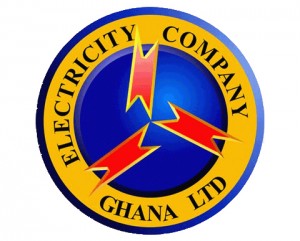Ghana government not in haste to release ECG on concession – Advisor
 Dr. Richard Asamoah-Baah, a Technical Advisor, at the Ministry of Finance, has said the Government would not rush to release the Electricity Company of Ghana (ECG) to a private company on the intended concession.
Dr. Richard Asamoah-Baah, a Technical Advisor, at the Ministry of Finance, has said the Government would not rush to release the Electricity Company of Ghana (ECG) to a private company on the intended concession.
He stated that the Government was rather taking its time to confer with the various stakeholders to ensure that maximum merit was achieved from the concession, before its full implementation in the next two or three years.
Speaking at a stakeholder sensitisation workshop on the Country’s Power Challenges in Cape Coast, he explained that the Government had only opted for the concession over privatisation but had not secretly signed a contract with any company, as was being speculated.
Dr. Asamoah-Baah stated that there would be an international competitive bidding before a company was selected for the concession, with the terms of the agreement open to “robust negotiation” to protect the interest of the Government.
A concession in this context is a negotiated contract between a Government and a private company that gives the company rights to operate a specific business within the Government’s jurisdiction under specified conditions.
The decision to release the ECG for concession is a component of a compact initiative between the Government and the Millennium Challenge Corporation (MCC) of United States of America with an objective of ensuring adequate and reliable power supply to both households and industry.
Per the compact, there is the need for the Government to improve the governance and management of the ECG by bringing in a private sector operator and building infrastructure and foundation investments to reduce losses and improve service quality.
Dr. Asamoah-Baah explained that unlike privatisation, where ownership of property or business was completely transferred from the Government to the private sector, Government would have full ownership of the ECG under the concession.
He also refuted speculations that the Government was conniving with technocrats to sell off the ECG, explaining that the Government was not considering the retrenchment of ECG staff when the new company took over.
He said the Government had lost millions of cedis due to the power challenges, therefore, it was only appropriate to bring on board a partner with adequate technical and financial capacity to turn around the country’s fortunes in that sector.
He called on all stakeholders to support and make their input to ensure the success of the concession.
Mr. Ronald Kwaku Boadi, the Director of Information and Communication Technology (ICT) of the ECG, pointed out that the concession would not immediately end the current power outage (Dumsor) but it was an arrangement to build a system of sustainable power supply.
He explained that the current problem was not mainly due to the distribution and transmission of power but with it was due to inadequate generation to meet increasing consumption.
However, efforts were being made to find a lasting solution to the problem, he said.
During open forum, various stakeholders made of traditional leaders, civil servants, Metropolitan, Municipal Chief Executives and a cross section of the public raised concerns about the effects the current power crisis had on productivity.
Other concerns were on the faulty and old wiring, especially in public buildings, that needed to be changed to prevent fire outbreak and its related casualties; the effective operation of the prepaid system; and the need for the Government to tread cautiously with the intended concession.
Source: GNA
